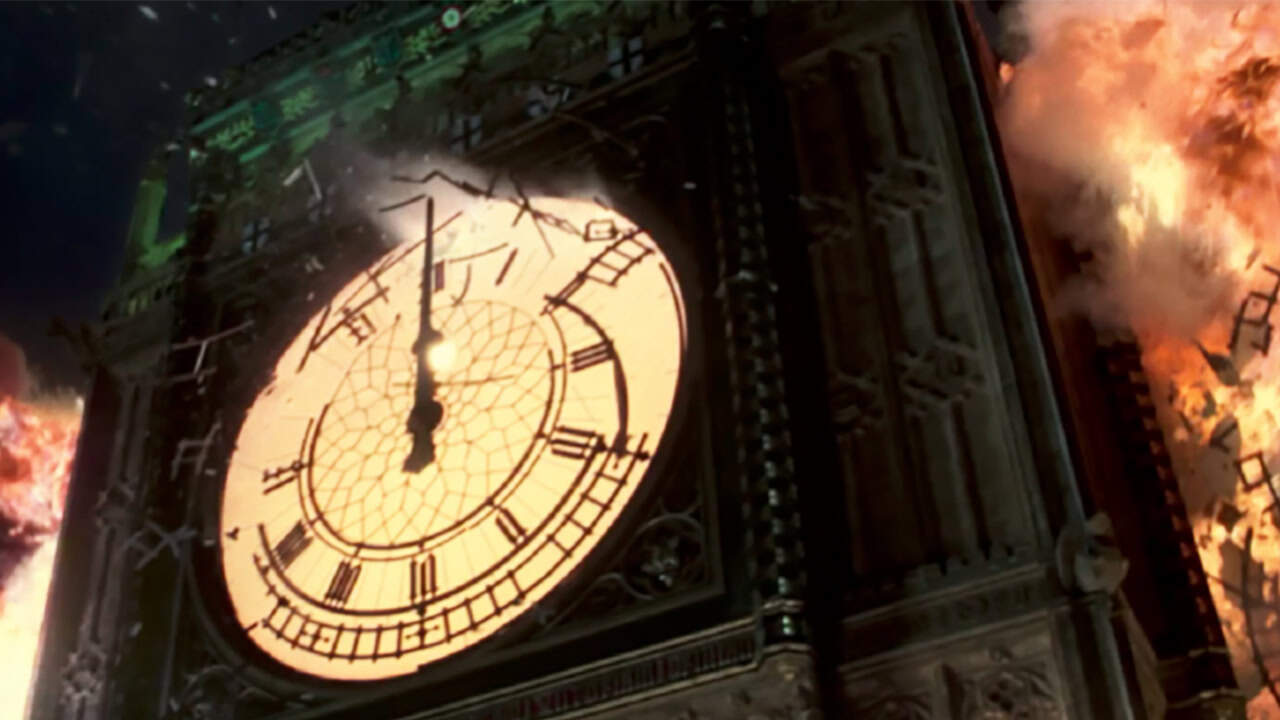By Joshua Tyler
| Published

Politicians lie to hide the truth, artists tell lies to reveal it; so proclaims the 2006 adaptation of V For Vendetta. It’s just been added to Netflix, and it’s never been more relevant.
V for Vendetta is a lie, a work of fiction written to reveal truth. It’s not an easy or comfortable truth, but there is truth somewhere in it.
I’m tempted to lie here and tell you there’s also a ton of kung fu, since that’s probably the best way to lure as many people as possible into seeing it. But I’ll avoid fabrication and stick with facts. This isn’t an action, superhero, or a full-on science fiction film. V for Vendetta is an idea. A subversive, uncompromising (somewhat naïve) idea.

Based on the same-named comic series written in 1982 by Alan Moore and David Lloyd, V for Vendetta tells the tale of a near-future England run by an oppressive government and a man, known only as V (Hugo Weaving), who sets out to destroy it. V is a terrorist, and he achieves his goals by murder, subterfuge, and blowing things up. He bursts onto the scene clad in dark clothes, hidden behind a Guy Fawkes mask, and spouting dialogue so complex and full of high-dollar words that it’s nearly another language.
While skulking London’s deserted, under curfew streets, he rescues a waifish girl accosted by Fingermen, the government’s assault-hungry secret police. The girl is Evey (Natalie Portman), and it’s the 5th of November, a day the people of Britain will remember.

V takes Evey under his wing as he embarks upon a strategy of governmental destruction. He’s a terrorist, but he’s not terrorizing the people. Instead, his goal is to awaken and empower them, while striking fear in the heart of England’s totalitarian government. “If you want to see who is responsible, look no further than a mirror,” he tells the country’s citizens. “I understand, you were afraid,” he says by way of forgiving them.
It’s the people who put Britain’s corrupt, hate-driven government in power, and it’s the people who must stop it. “People should not be afraid of their governments,” pronounces V, “governments should be afraid of their people.”

V For Vendetta is a visually rich, dark, and resonant film; one which uses style to convey substance under the guise of pure entertainment. The Wachowski brothers’ script is an absolutely faithful adaptation of its source material, tweaked just enough to update it and properly translate it to the screen. James McTeigue’s directing is pitch-perfect; he cuts in all the right places and lingers on all the right moments. He gives the film a sense of urgency, even when characters are just hanging around philosophizing. Whenever the movie moves towards becoming too preachy, he quickens the pace and plunges into something exciting.
Is the movie political? Yes, but not necessarily in a way that’s specific to any one modern political party. It was, after all, written in 1982. These are the same political paradoxes that have been plaguing man for centuries. If you’re British, you’ll almost certainly find a way to apply it to Keir Starmer or Tony Blair, but that’s only because the film’s themes are universal.

Hugo Weaving is incredible as V, acting underneath a stiff, somewhat silly mask that completely covers his face, his eyes, or anything else he might use to convey the slightest emotion. Yet somehow, V is the film’s most passionate, powerful character.
Hugo uses his voice and physicality to convey that, to bring an awkward, faceless creation to electrifying life. V calls himself an idea, and with Weaving playing him, he’s a very powerful idea indeed.

But it’s Natalie Portman’s Evey that becomes the real heart of the movie. V is an unstoppable force; Evey is a real person, caught up in his deadly rebellion. Her conversations with V, not the movie’s one or two action bits, are the driving force of the Wachowskis script. Evey resists V’s crusade against oppression, her mind rebels against what he has to say out of fear and self-preservation. So will you.
There are people who are going to hate this movie: people who don’t like to think, the brain-dead, the fools. Referencing the still-unseen film back in the days before it was released, one member of a politically minded film forum was quick to declare: “You can’t make a movie about a terrorist now without endorsing bin Laden.” It’s the prevalence of this mindset that makes V for Vendetta so unsettling.

At times, it almost feels like you’re watching something forbidden, like you’re seeing something you shouldn’t be allowed to see. It’s shocking that a movie like this ever actually got made. It’s even more unbelievable that it was made by a major Hollywood studio. Would the Wachowskis have been allowed to make it if they were making it now? I doubt it.
It’s fun to accuse Hollywood of activism, but you don’t expect this kind of real filmmaking bravery from corporate America or a company like Warner Bros. It’s a purposefully uncomfortable film, one that will affect different people differently depending on what you bring in with you.

Yes, V for Vendetta is rebellious and risky, subversive and dangerous. But it’s not cynical. V’s naïve take on the world is one that believes in the basic strength and goodness of people as strongly as it believes in the intrinsic corruptness of big government. It’s a viewpoint that almost certainly has no basis in reality, but that’s alright.
What makes the film great is that you’re not asked to subscribe to its philosophy, only think about it and take note. It’s not a call to rise up against your rulers, but a warning about the way fear can be used to give a person or organization too much power. It’s an old lesson, but one that bears frequent repeating.

It’ll stick with you after you turn off your TV. You won’t want to think about it; the ideas in this film are too dangerous, but you’ll have to. V is that kind of powerful. Once you see it, there’s no escaping it.
V For Vendetta was added to Netflix this month and will remain there for a while. Open your mind and stream it.

V FOR VENDETTA REVIEW SCORE

“By the power of truth, I, while living, have conquered the universe.” – V’s Personal Motto
